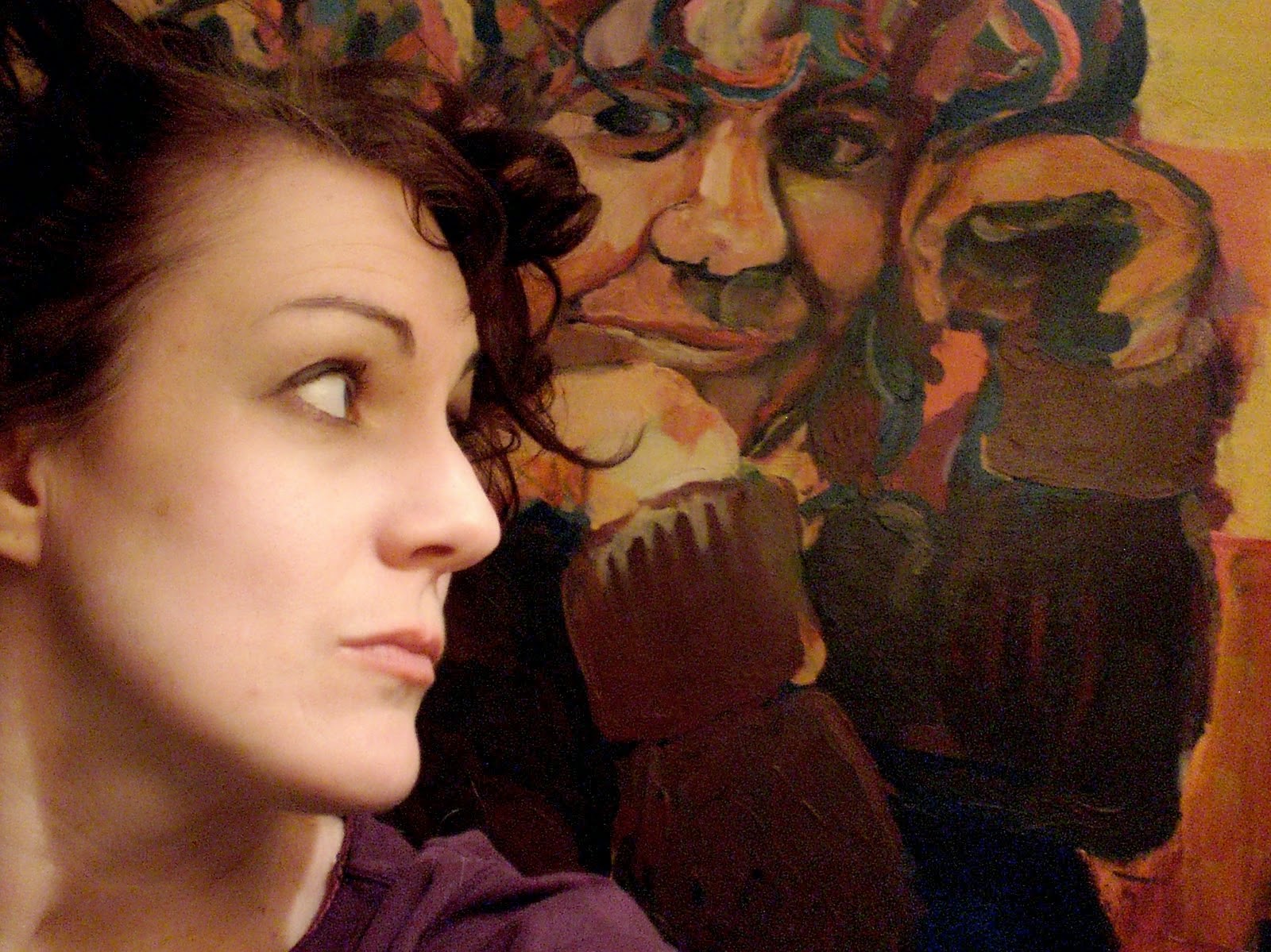In the last installment of Christine’s Voice, I had just chosen Olivier Messiaen’s Poèmes pour Mi for the Shenson Recital Series at Stanford University. We find our heroine in the library in Frankfurt, on the hunt for repertoire to complete the program....
What might fit in with Messiaen’s cycle of love songs written in 1936, also fitting in with the theme of music surrounding World War II? With this on my mind, I saw, as if laid there by an angel, Lamento by Karl Amadeus Hartmann (1905-1963) on the shelf in plain sight.
I opened the book.
Modern? Check! German? Check! Texts about the atrocities of war? Check!
Modern? Check! German? Check! Texts about the atrocities of war? Check!
I hadn’t heard of this composer -- to be fair, he hadn’t written much for the voice, and his other works aren’t that popular -- but the more I researched, the more I found his story to be fascinating. In a sort of self-imposed exile (Hartmann himself called it an innere Emigration), he demanded that none of his works be performed in Germany while the Nazis ruled. His compositions enjoyed success in other countries, like Poème symphonique MISERAE, performed 1935 in Prague, and since he was neither Jewish nor otherwise subject to persecution from The Third Reich, he could come and go as he pleased.
In solidarity to his contemporaries whose works had already been deemed degenerate and some who had been forced out of the country or worse, he dedicated the piece to his “friends, 100s of whom had to die, who sleep now for eternity -- we will not forget you.”
Lamento, a reworking of Friede Anno 48 which was a cantata for soprano, chorus and piano, is set to texts by Andreas Gryphius, a German lyric poet of the baroque era. These were sonnets written about the Thirty Years War, which was also the setting of Hartmann’s chamber opera based on Grimmelshausen’s novel The Adventurous Simplicissimus (1668) to which he commented:
“The descriptions of the setting of the Thirty Years War struck me as strangely current. [...] There, the individual was at the mercy of the desolation and savagery of an era, in which our people had already once been close to losing the core of our soul.”
As I read the Gryphius sonnets for the first time that day in the library, I had a similar feeling. Even to this day, in several places around the world, we are in the midst of or on the verge of war. More than 300 years after these texts were written, we continue to use poetry and music to convey our frustration with it, and ‘fight’ against it.
Lamento was one of several of Hartmann’s compositions which emerged as a reworking of another piece. Like his music, our recital program went through many revisions and rewrites before becoming what it is. I had to consider the arc of the program, and although this song cycle conveyed the exact message I would like to get across, bombarding college students on a sunny Sunday afternoon in California with 20 minutes of atonal music lamenting death and destruction just didn’t seem like the way to go.
Was I to leave Lamento altogether? No. We’d come too far by now. We decided, for the sake of the program as a whole, to cut the third movement from the performance - a 9-minute happy end called “Friede” (Peace) built on two separate Gryphius sonnets.
Was I to leave Lamento altogether? No. We’d come too far by now. We decided, for the sake of the program as a whole, to cut the third movement from the performance - a 9-minute happy end called “Friede” (Peace) built on two separate Gryphius sonnets.
As difficult as it was to drop “Friede” from the set -- because this piece contains some of my favorite moments from the Lamento cycle, and since the whole piece serves as a crux for the recital itself -- it still seemed like the right thing to do. At some point, Hartmann himself had to learn to stop revising, changing and perfecting his pieces and just put them out there.
Even without the third song, we will still be able to bring across Hartmann’s interesting musical language in the context of a program which reflects those he influenced and who influenced him.
So, I will just leave the text from my favorite passage here for myself, to remember what drew me into the piece in the first place:
Adding to Gryphius’ words, “... in which sweet peace returns, and one hears a song of thanks instead of raging trumpets...,” Hartmann, suddenly drops the atonal shield between us and our barbaric nature, and embraces a harmonious major chord to add in his own words: “Peace to mankind, Peace to the dead, Peace to the living. Peace, Peace, Peace.”
The Shenson Recital Series: April 12, 2:30p.m. Campbell Recital Hall, Stanford University













